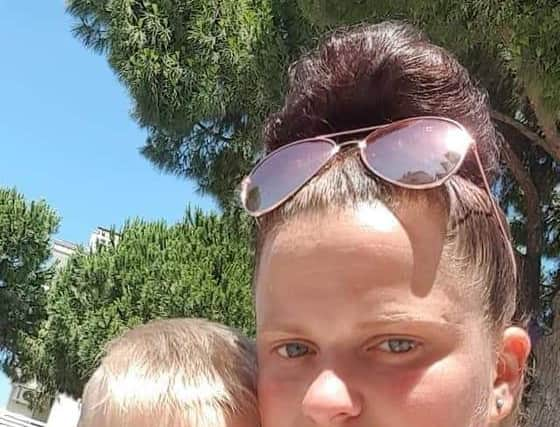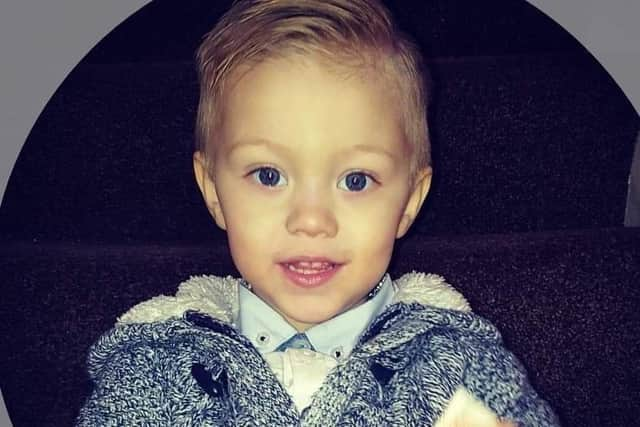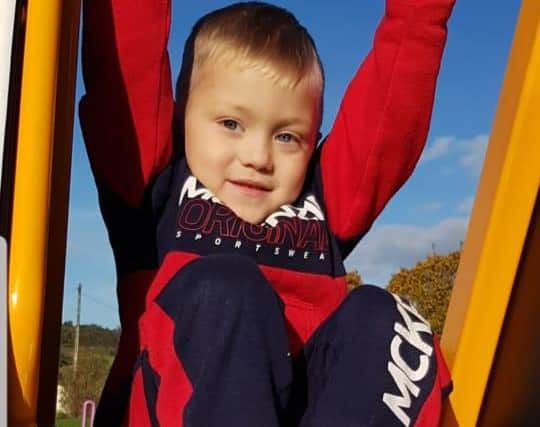Sheldon Farnell: Consultant's 'life long regret' for not appreciating the seriousness of four-year-old's illness before his tragic death
and live on Freeview channel 276
An inquest into the death of Sheldon Gary Farnell was heard on Monday, March 15, following the boy’s death on November 26, 2018.
Dr Geoffrey Lawson, a paediatric consultant at Sunderland Royal Hospital, admitted that he did not know the seriousness of the infection after blood tests found group A streptococcus.
Advertisement
Hide AdAdvertisement
Hide Ad"I was available, I saw Sheldon and I did not appreciate the seriousness of the illness which will be my life long regret,” Dr Lawson, who retired in August 2019, told the hearing at Redhills in Durham.


The consultant paediatrician said he had not sensed any ‘feeling of urgency’ from the micro-biologist through a fellow doctor after the test results were confirmed, and had not come across the infection himself throughout his career before.
In a statement read out at the start of the hearing, Sheldon’s mum Katrina Keegan said: “On the last day of Sheldon’s too short life, my son begged me not to let him die...no four-year-old should know about death.”
She spoke of her loving little boy and how she will never get to see him grow up before adding: “He could and should have had a fantastic life… My Sheldon will always be four-years-old.”
Advertisement
Hide AdAdvertisement
Hide AdThe inquest jury heard how the four-year-old, from Houghton, attended Sunderland Royal Hospital’s accident and emergency department on the evening of Friday, November 23, follow two days of a high temperature, headaches and occasional vomiting.


Outlining the case, senior coroner for Sunderland Derek Winter said Sheldon’s condition appeared to improve during his stay in hospital before he was discharged on the afternoon of Sunday, November 25.
Preliminary blood tests which had suggested an infection were assumed to be contaminated because of Sheldon’s improving medical stats and that he appeared well.
He was given medication for an iron deficiency and discharged.
Advertisement
Hide AdAdvertisement
Hide AdLater the micro-biologist confirmed final blood test results as being group A streptococcus – bacteria which can lead to sepsis - after Sheldon and his family had left the hospital, and said the four-year-old should be given antibiotics amoxicillin even if he appeared well.


Dr Sirnanda, a fellow doctor at Sunderland Royal, phoned Dr Lawson, who was at home after finishing his shift, and told him the results. Dr Lawson then told Dr Sirnanda to contact the family so they could pick up an antibiotic prescription.
Two phone numbers for the family did not work and once phone number which was connected was not answered, the inquest heard.
Hours later at 9pm Dr Lawson made the decision not to ask for the police to trace the family – but to call the GP for a different contact number the following morning.
Advertisement
Hide AdAdvertisement
Hide AdShortly after 2am the following morning, the family rang the hospital as Sheldon’s condition had deteriorated and he was brought in at 4am in sceptic shock. He died following a cardiac arrest at 8.42am on Monday, November 26.
During the first day of the five-day hearing, Dr Lawson said: “I didn’t know that I didn’t know this was a serious infection and I needed to be prompted.”
He also confirmed that no clinical harm would come to a four-year-old receiving antibiotics if they weren’t needed.
Dr Lawson added: “I have admitted this morning a part of my knowledge and experience did not appreciate that a positive blood culture was one that needed to be acted on with urgency.”
Advertisement
Hide AdAdvertisement
Hide Ad"I was wrong but I was consistent. I failed to realise that a gram positive finding in the blood culture was of huge importance.
"I was never given, through the micro-biologist’s reporting, any indication that really what we should have done was implement Sepsis 6 at 1.30pm (on Sunday 25) and at the very least given him amoxicillin under observation.”
The inquest continues.